Search
Remove Ads
Advertisement
Summary 
Loading AI-generated summary based on World History Encyclopedia articles ...
Search Results
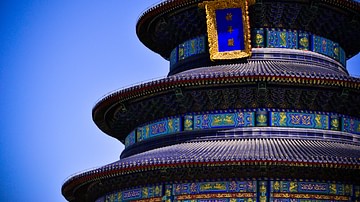
Definition
Ming Dynasty
The imperial Ming dynasty ruled China from 1368 to 1644. It replaced the Mongol Yuan dynasty which had been in power since the 13th century. Despite challenges from abroad and within, the Ming dynasty oversaw an unprecedented growth in China's...
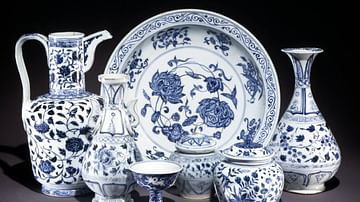
Definition
Ming Porcelain
The porcelain of the Ming Dynasty of China (1368-1644 CE) benefitted, as did other arts, from the economic success of the 15th century CE, in particular, and the consequent surge in demand for quality handcraft production both at home and...
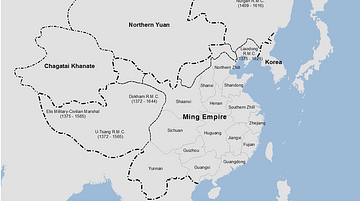
Image
Ming Dynasty Empire, c. 1409 CE
The Ming Dynasty Empire (1368-1644 CE) at the time of the Yongle Emperor (aka Chengzu r. 1403-1424 CE).

Image
Ming Dynasty Blue-and-White Porcelain
A selection of Ming Dynasty (1368-1644 CE) blue-and-white porcelain. From Chenghua reign, 1465-1487 CE. (British Museum, London)
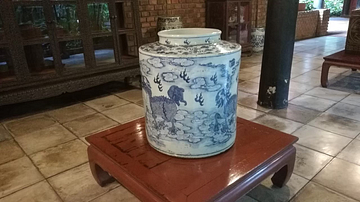
Image
Ming Dynasty Porcelain
Ming Dynasty (1368 to 1644 CE) porcelain on display at the Jim Thompson House Museum in Bangkok, Thailand. Date of porcelain is unknown. This photo was taken in July 2019 CE.
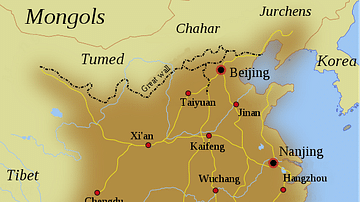
Image
Map of the Ming Dynasty Territory
A map indicating the territory controlled by the Ming Dynasty (1368 to 1644 CE) in the late 16th century CE.
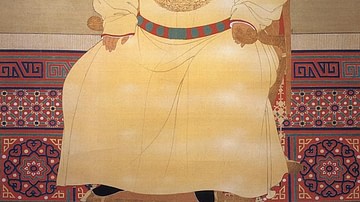
Definition
Hongwu Emperor
The Hongwu Emperor (r. 1368-1398 CE) was the founder of the Ming dynasty (1368-1644 CE) which took over from the Mongol Yuan dynasty (1276-1368 CE) as the rulers of China. Born a peasant with the name Zhu Yuanzhang, the future emperor led...
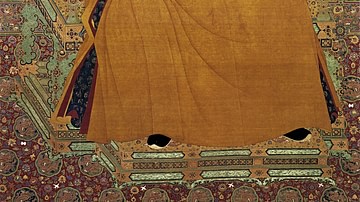
Definition
Yongle Emperor
The Yongle Emperor (aka Chengzu or Yung Lo, r. 1403-1424 CE) was the third ruler of the Chinese Ming Dynasty (1368-1644 CE). Inheriting a stable state thanks to the work of his father, the Hongwu Emperor (r. 1368-1398 CE), Yongle made lasting...
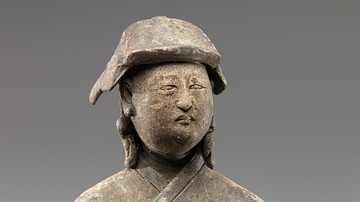
Definition
Yuan Dynasty
The Yuan Dynasty was established by the Mongols and ruled China from 1271 to 1368 CE. Their first emperor was Kublai Khan (r. 1260-1279 CE) who finally defeated the Song Dynasty which had reigned in China since 960 CE. Stability and peace...
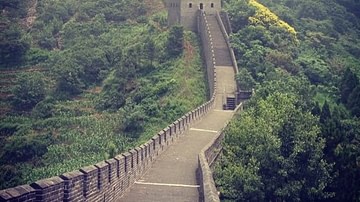
Definition
Great Wall of China
The Great Wall of China is a barrier fortification in northern China running west-to-east 13,171 miles (21,196 km) from the Jiayuguan Pass (in the west) to the Hushan Mountains in Liaoning Province in the east, ending at the Bohai Gulf. It...